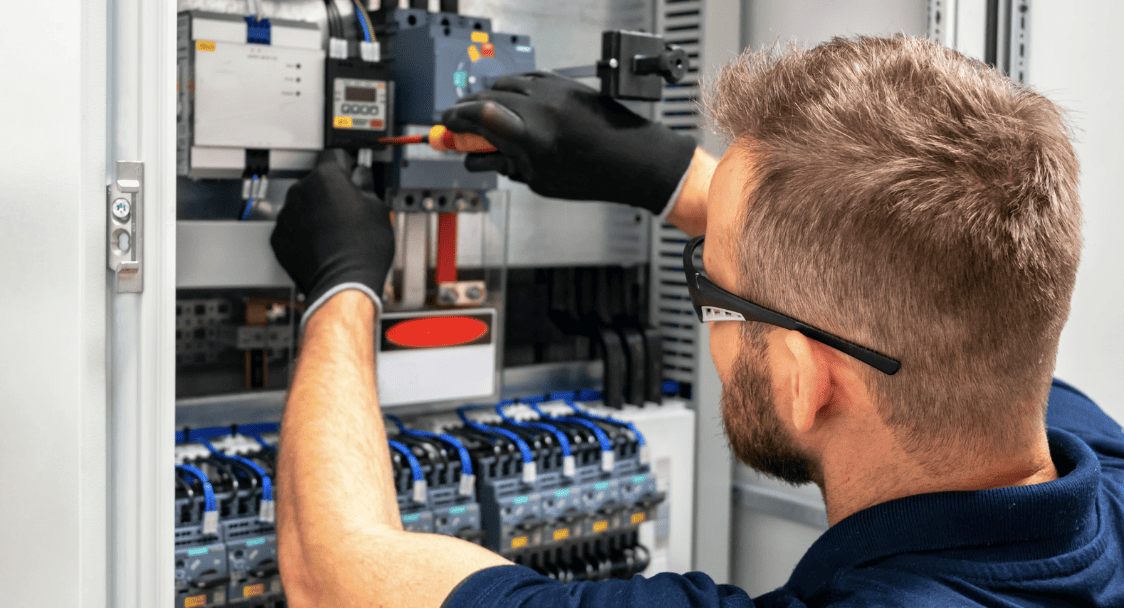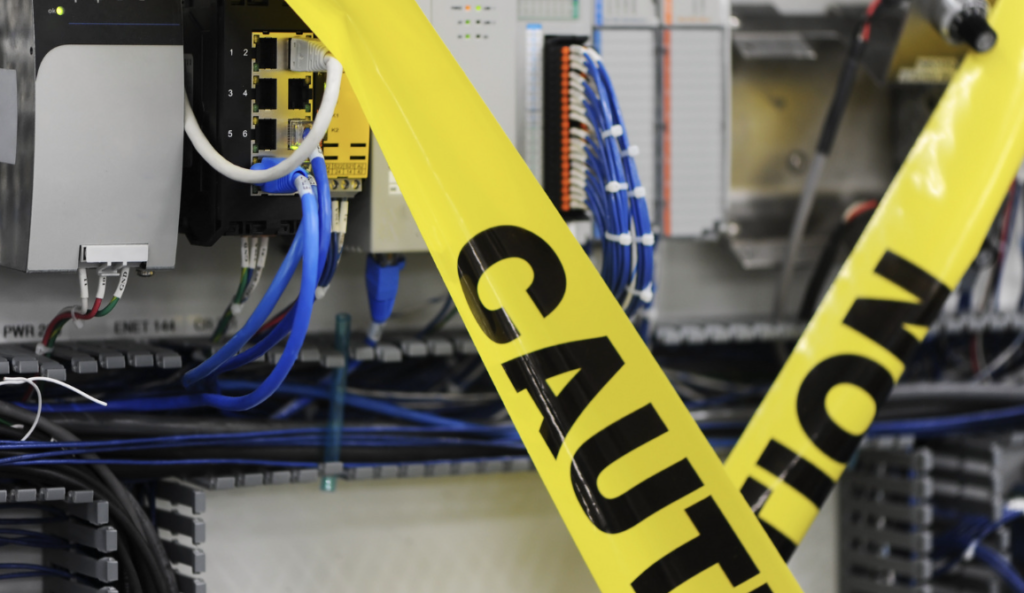

What Is Electrical Safety
Electrical safety is a critical aspect of our daily lives. From powering our homes to enabling technological advancements, electricity plays a vital role. However, without proper precautions, it can pose significant risks. Electrical safety is essential to prevent accidents, injuries, and property damage. In this article, we’ll explore the concept of electrical safety, its importance, and practical tips to ensure safety in various settings.
3 Key facts summarised from the article:
- Electrical safety is crucial to prevent electricity-related accidents, injuries, and property damage. It involves insulation, grounding, safe equipment handling, and electrical safety devices like circuit breakers and surge protectors.
- Understanding the hazards of electricity, including electric shock, electrical burns, electrocution, and fire risks, highlights the importance of following electrical safety protocols. Awareness of these risks helps individuals take appropriate precautions to mitigate potential dangers.
- Electrical safety is a shared responsibility. Homeowners should conduct regular inspections, while licensed electricians play a vital role in installations, repairs, and upgrades. Employers must provide a safe work environment and ensure proper training and regulatory authorities establish and enforce electrical safety standards for public safety.
Individuals can prevent accidents, protect property and assets, comply with regulations, create safe environments, and safeguard public well-being by prioritising electrical safety.
Understanding Electrical Safety
Electrical safety refers to the measures and practices aimed at preventing electrical hazards and promoting the safe handling of electricity. It involves identifying and mitigating electrical systems, devices, and appliance risks. Here’s what you need to know:
Hazards of Electricity
Electricity can present various risks, including:
- Electric Shock: Exposure to electric current can cause severe injury or even death.
- Electrical Burns: Contact with live electrical parts can result in burns ranging from mild to severe.
- Electrocution: A fatal electric shock that occurs when current passes through the body.
- Fire and Property Damage: Electrical faults or malfunctions can lead to electrical fires, causing significant property damage.
Electrical Safety Measures
To ensure of electrical safety, several measures are crucial:
- Insulation and Grounding: Proper insulation of wires and grounding of electrical systems prevent electric shock and minimise the risk of electrical fires.
- Safe Equipment Handling: Use caution when handling electrical equipment, ensuring they are in good condition and not damaged.
- Proper Use of Electrical Devices: Follow manufacturer instructions and use electrical devices as intended, avoiding misuse or overloading.
- Electrical Safety Devices: Install circuit breakers, ground fault circuit interrupters (GFCIs), and surge protectors to prevent electrical hazards.
Roles and Responsibilities
Maintaining electrical safety is a shared responsibility. Various stakeholders play crucial roles:
- Homeowners: Homeowners must follow electrical safety guidelines, conduct regular inspections, and promptly address potential hazards.
- Electricians: Licensed electricians possess the expertise to safely handle electrical installations, repairs, and upgrades. Hiring professionals ensures compliance with safety regulations.
- Employers: Employers must provide a safe working environment, conduct employee electrical safety training, and implement proper maintenance practices.
- Regulatory Authorities: Regulatory bodies establish electrical safety standards and enforce compliance to protect public safety.

Safety Tips for Specific Settings
Electrical safety measures may vary depending on the specific settings. Here are some safety tips for different environments:
- Kitchens:
- Keep electrical appliances away from water sources.
- Regularly check cords and plugs for signs of damage.
- Avoid overloading outlets by using power strips with built-in surge protectors.
- Bathrooms:
- Install ground-fault circuit interrupters (GFCIs) to prevent electric shock.
- Ensure proper ventilation to minimise moisture-related electrical hazards.
- Keep electrical devices away from water and wet surfaces.
- Construction Sites:
- Adhere to adequate lockout/tagout procedures when working on electrical equipment.
- Use appropriate personal protective equipment, such as insulated gloves and safety goggles.
- Regularly inspect and maintain electrical tools and equipment.
- Office Environments:
- Avoid running cords under carpets or in high-traffic areas to prevent tripping hazards.
- Do not overload electrical outlets with multiple devices.
- Encourage employees to report any electrical issues or potential threats.
Importance of Electrical Safety
Understanding the importance of electrical safety is key to prioritising it in our daily lives:
- Preventing Accidents and Injuries: Adhering to electrical safety measures minimises the risk of accidents, protecting individuals from electric shocks, burns, and other injuries.
- Protection of Property and Assets: Electrical faults can lead to destructive fires or damage expensive electronic devices. Following safety protocols safeguards your property and valuable assets.
- Mitigating Fire Hazards: Electrical malfunctions are a leading cause of fires. Practising electrical safety reduces the likelihood of electrical fires and the resulting devastation.
- Ensuring Compliance with Regulations: Adhering to electrical safety regulations is crucial to meet legal requirements and avoid penalties or liability in case of accidents.
- Creating a Safe Work Environment: For businesses, prioritising electrical safety promotes employee well-being and productivity, reducing the risk of workplace accidents.
- Safeguarding Public Safety: Electrical safety measures benefit society, ensuring public safety and reducing the strain on emergency services.
Tips for Ensuring Electrical Safety
To maintain electrical safety, consider the following information:
Home Electrical Safety Tips
- Avoid overloading outlets and use power strips with surge protection.
- Regularly inspect electrical cords for damage and replace if necessary.
- Install childproof outlet covers to prevent accidents.
- Schedule regular electrical inspections by a licensed electrician to identify potential hazards.
Workplace Electrical Safety Tips
- Provide comprehensive electrical safety training for employees.
- Establish lockout/tagout procedures to ensure the safe maintenance of equipment.
- Encourage using personal protective equipment (PPE) when working with electricity.
- Promptly report and address any electrical issues to prevent accidents or disruptions.
Remember, electrical safety should never be taken lightly. By following these tips, you can create a safer environment for yourself, your family, and your colleagues.

Conclusion
Electrical safety is paramount to protecting lives, property, and public well-being. Understanding the hazards of electricity, implementing safety measures, and adhering to best practices are key to preventing accidents and promoting a secure electrical environment. By prioritising electrical safety, we can harness the power of electricity while minimising risks.
Frequently Asked Questions (FAQs)
What are the common causes of electrical accidents?
Electrical accidents can be caused by faulty wiring, improper use of electrical devices, overloading circuits, and lack of maintenance.
How can I check if my home's electrical system is safe?
It is recommended to hire a licensed electrician to conduct a thorough electrical inspection of your home to identify any potential hazards and ensure compliance with safety standards. For commercial properties you can always consider PAT Testing for a licensed electrician to perform an inspection on your appliances,
Why is it important to hire a licensed electrician?
Licensed electricians have the necessary training and expertise to handle electrical work safely. They ensure that installations and repairs meet safety regulations, reducing the risk of accidents. Speak to our licensed electricians Coventry today.
Are there specific safety precautions for handling electrical appliances?
Yes, it is important to follow manufacturer instructions, avoid using damaged appliances, and unplug devices when not in use. Additionally, keep electrical appliances away from water sources.
What should I do in case of an electrical emergency?
In an electrical emergency, such as a fire or electrical shock, ensure your safety first by moving away from the source of danger. Call emergency services immediately for assistance.
For more detailed information and resources on electrical safety, you can visit trusted UK authority sites such as the Electrical Safety First (www.electricalsafetyfirst.org.uk) or the Health and Safety Executive (www.hse.gov.uk).
